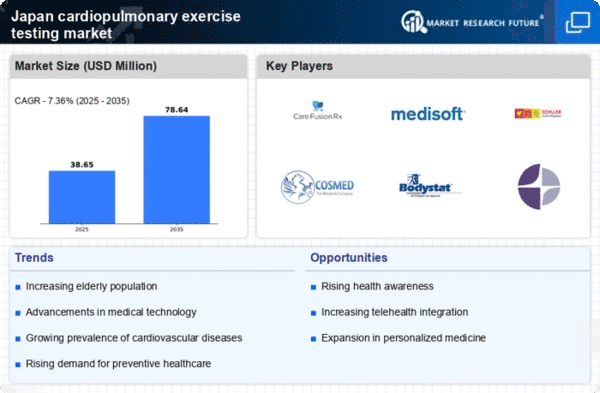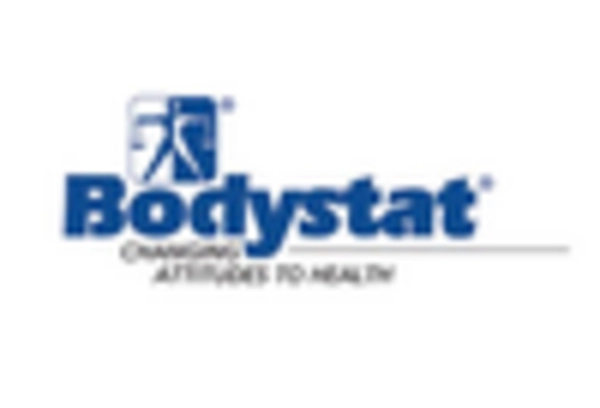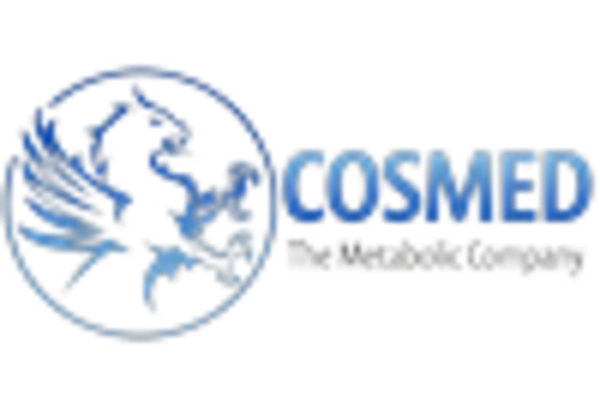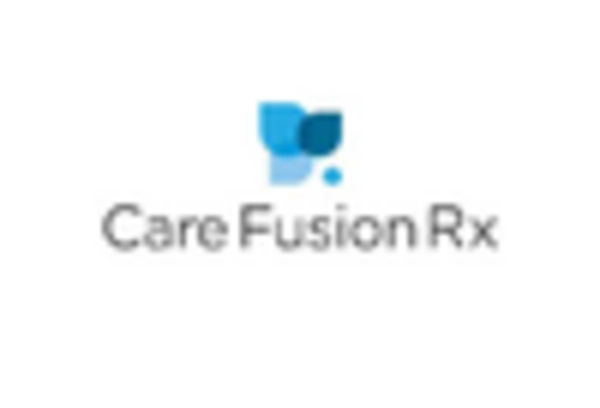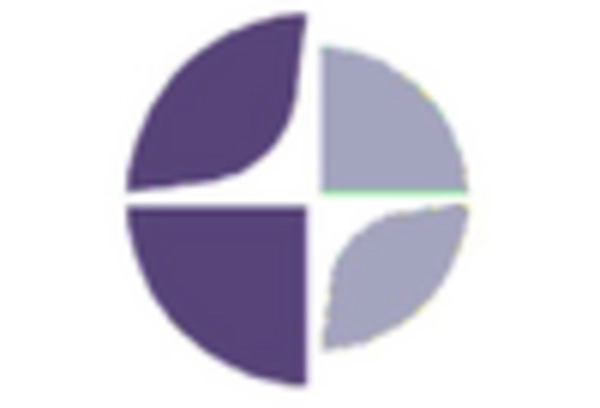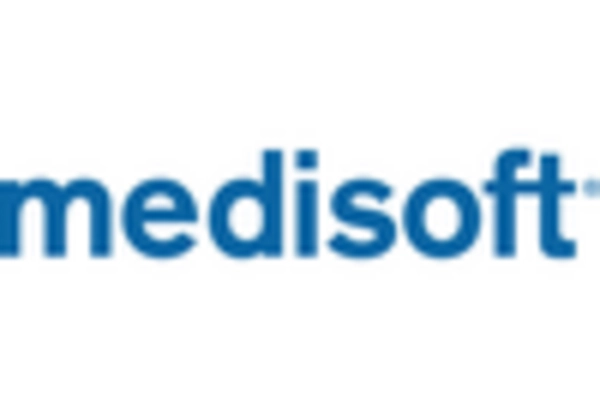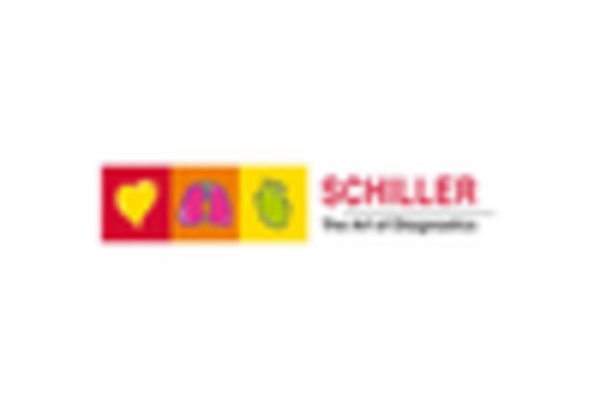Increased Healthcare Expenditure
Japan's healthcare expenditure has been on an upward trajectory, which positively influences the cardiopulmonary exercise-testing market. The country spends approximately 10% of its GDP on healthcare, reflecting a commitment to improving health services. This financial investment allows for the acquisition of advanced medical technologies, including sophisticated cardiopulmonary exercise testing equipment. Hospitals and clinics are increasingly allocating budgets for diagnostic tools that enhance patient care and streamline clinical workflows. As healthcare facilities strive to meet the rising demand for accurate and efficient testing, the cardiopulmonary exercise-testing market is likely to benefit from this increased financial support. Moreover, the emphasis on quality healthcare services may lead to a greater integration of exercise testing in routine health assessments.
Regulatory Support for Diagnostic Testing
The regulatory environment in Japan is increasingly supportive of diagnostic testing, which positively impacts the cardiopulmonary exercise-testing market. The Ministry of Health, Labour and Welfare has been actively promoting the use of advanced diagnostic tools to improve healthcare outcomes. This regulatory backing encourages healthcare providers to adopt cardiopulmonary exercise testing as a standard practice in patient assessments. Additionally, streamlined approval processes for new testing technologies may lead to a quicker introduction of innovative products in the market. As regulations evolve to support the integration of advanced diagnostic methods, the cardiopulmonary exercise-testing market is likely to see enhanced growth opportunities, fostering a more robust healthcare system.
Growing Awareness of Preventive Healthcare
There is a notable shift towards preventive healthcare in Japan, which serves as a significant driver for the cardiopulmonary exercise-testing market. Public health campaigns and educational initiatives have raised awareness about the importance of early detection and lifestyle management in preventing chronic diseases. As individuals become more health-conscious, the demand for comprehensive health assessments, including cardiopulmonary exercise testing, is expected to rise. This trend is further supported by the increasing number of health check-up programs offered by employers and insurance companies, which often include exercise testing as part of their preventive health strategies. Consequently, the cardiopulmonary exercise-testing market may experience substantial growth as more individuals seek these services to monitor their cardiovascular health.
Rising Prevalence of Cardiovascular Diseases
The increasing incidence of cardiovascular diseases in Japan is a primary driver for the cardiopulmonary exercise-testing market. According to recent health statistics, cardiovascular diseases account for approximately 30% of all deaths in the country. This alarming trend necessitates advanced diagnostic tools, including cardiopulmonary exercise testing, to assess patients' cardiovascular health effectively. As healthcare providers seek to improve patient outcomes, the demand for these testing services is expected to rise. Furthermore, the Japanese government has been promoting preventive healthcare measures, which may further boost the adoption of cardiopulmonary exercise testing as a standard practice in clinical settings. This growing focus on early detection and management of cardiovascular conditions is likely to enhance the market's growth prospects in the coming years.
Technological Innovations in Testing Equipment
Technological advancements in cardiopulmonary exercise-testing equipment are driving the market's growth in Japan. Innovations such as portable testing devices, enhanced software for data analysis, and improved accuracy in measuring physiological parameters are making these tests more accessible and efficient. The integration of artificial intelligence and machine learning into testing protocols is also enhancing the interpretation of results, leading to better clinical decision-making. As healthcare providers adopt these cutting-edge technologies, the cardiopulmonary exercise-testing market is likely to expand. Furthermore, the development of user-friendly interfaces and remote monitoring capabilities may facilitate the use of exercise testing in various healthcare settings, including outpatient clinics and home care.


